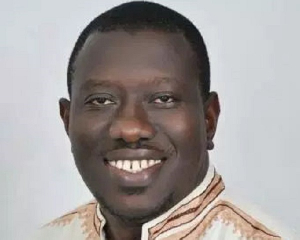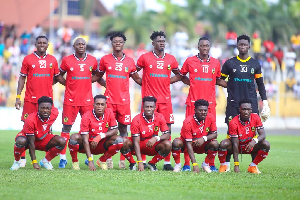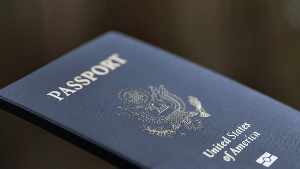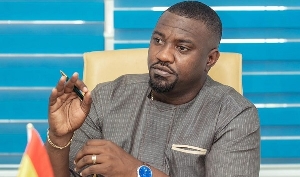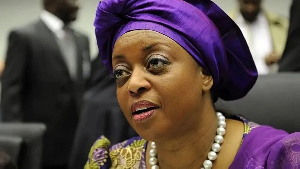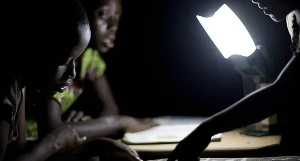“All the world's a stage, And all the men and women merely players;
They have their exits and their entrances, And one man in his time plays many parts” - William Shakespeare.
The Mkapa family has lost a patriarch. The United Republic of Tanzania has lost a patriot. Africa has lost a statesman and Ghana, a friend.
Born in 1938 in the small village of Ndanda along the Tanzanian border with Mozambique, Benjamin Mkapa was the last of four children born to his parents. A son of a catechist in a small village, Ben recalled that he had three career paths before him; a priest, a doctor or a teacher—in that order.
His father, one of the first native missionaries in the British protectorate of Tanganyika, was selected by missionaries to receive formal education to enable him spread the word. And even though his father’s job as a catechist did not make him rich by any measure, Benjamin’s parents understood the value of education. In his words, they made great sacrifices for his education and that of his siblings. But for Benjamin in particular, his father had bigger dreams.
Although he did not take up any of the three careers his father set out for him, Benjamin Mkapa took his parents’ emphasis on education seriously. He will end up; top of his class at tenth grade; with a first in the Cambridge School Certificate Examination and proceed to Makerere University for a Bachelor’s Degree in History, Economics and English and later a Master’s in International Affairs at Columbia University. He was biding his time to go into politics while at it. Even though he knew his father might be disappointed in his choice he could not help it—history was on the move and he had heard history’s call.
He came of age at a crucial time when African countries were beginning to shake off the shackles of colonialism—Ghana, 1957; Nigeria, 1960; Tanzania, 1963. Like his Ghanaian contemporaries and friends—Prof. Akilakpa Sawyer, Prof. Kwesi Botchway, Dr. Mohammed Ibn Chambas, Benjamin Mkapa connected with the struggle for African emancipation at an early age and honed his skills and nourished his desire for public service. At Makerere, this desire took root at the feet of revolutionaries like Milton Obote and Benedicto Kiwanuka of Uganda and Jaramogi Odinga and Tom Mboya of Kenya who frequented Makerere campus to engage students.
A gifted liberal arts student, Benjamin Mkapa enjoyed literature and wrote about African freedom and independence from an early age. At Makerere, his passion for Africa led him to co-found a student magazine with what then later-to-become literary giants—Chinua Achebe and Ngugi Wa Thiong’o. But, above all, it will be the great Mwalimu Julius Nyerere who will have the greatest influence in his life.
He imbibed from Nyerere Pan-Africanist values — the notion that we as Africans can help ourselves. He was the founder’s son. He spoke for himself and Julius Nyerere every time he thundered, “we must find African solutions to African problems”— his own iteration of Nyerere’s ujamaa.
After Makerere, Benjamin Mkapa’s political career took off with a position in the Tanzanian Foreign Service which first brought him to West Africa—to Nigeria. When he rose to Foreign Affairs Minister, Benjamin Mkapa found reliable colleagues in his Ghanaian peers; first, Hon. Victor Gbeho and then Hon. Obed Asamoah which marked the beginning of an unusual bond he had with Ghana. As President and former president of Tanzania, he forged lasting friendships with all of Ghana’s fourth republican presidents; H.E Jerry Rawlings, H.E John Kufuor, the late H.E John Atta-Mills, H.E John Mahama and H.E Nana Akufo-Addo—friendships which lasted to his last day.
On leaving office as president, Benjamin Mkapa hosted the Asantehene Otumfuo Osei Tutu II in a rare case of the latter accepting an invitation from a private citizen—it showed the level of mutual trust and respect between the two distinguished personalities. But his relationship with Ghana went beyond those in high political office or of high social status. Benjamin Mkapa took an interest in the everyday Ghanaian when he attended mass in Ho or made donations to rural communities in the Volta Region of Region of Ghana. He loved Ghanaian cuisine, Ghanaian textile and Ghanaian traditional art.
As president, Mkapa was the de facto patron of Ghanaian students in Tanzania. He had an open door policy towards them. The Ghanaian community as a whole had access to him, too. Indeed, no one was prouder than President Mkapa when Dr. Felix Sosoo, a Ghanaian, became the first non-native to obtain a PhD in Kiswahili.
Beyond politics, education was central to President Mkapa’s love for Ghana. In his final years he will deliver two keynote addresses at the University of Cape Coast (UCC) and the University for Development Studies (UDS). He worked well with Ghanaians too—appointing his longtime friend, Ghanaian Economist, Dr. Ken Kwaku as his Economic Advisor in his second term.
Benjamin Mkapa’s life can rightly be described as a life of public service. A life marked by pride in our African identity and a commitment to making Africa better. But he could do that because of the love and devotion that he gave to this own family a love which was returned in equal measure. He was a family man. Committed to Mama Mkapa, his wife, children and grandchildren.
William Shakespeare—one of President Mkapa’s literary favourites—in his poem quoted at the beginning of this tribute reminds us that in the stage of life “…one man plays many parts”. Thus, it is always difficult to summarize a life in words. To capture the essential truth of a person, especially a person of many parts—who has been through the changing currents of public life for forty years. Such a life transcends places, dates and offices.
For Benjamin Mkapa though, behind his lifelong service to his nation and the continent is a trail of much touted yet seldom practiced values—kindness, empathy, integrity and genuineness—values deeply engrained in him by his stiff catholic upbringing. He was his father’s son. When it came to his core values he was unyielding. He hated bullies and those who lord their power and privilege over others. We saw this in his fight against poverty.
His insistence that all people everywhere, rich or poor, black or white have equal value. He extended that same largeness of spirit to the fight against HIV/AIDS by confronting stereotypes and using the full range of his policy and legislative power to confront that epidemic. He had courage—one of many things he took from Mwalimu Nyerere, his mentor.
Here goes a true son of Tanzania and a proud African. Benjamin Mkapa lived and died African. He never doubted that the African was just as capable as anyone in the world. He realized the promise of Africa in his own life, rising from that small village on the border to become one of Africa’s foremost statesmen. He represented the best in us.
Perhaps, President Mkapa’s greatest gift is captured in that Kiswahili word ‘uongozi’ which means leadership. Ben was a leader by default. He pondered long and saw far, he was tireless yet patient. Even in retirement he gave his last full measure of devotion to the cause of Africa, working mostly through the Uongozi Institute which he helped to establish with a mandate to develop an effective, honest and capable leadership for Africa.
Benjamin Mkapa played many parts. His was a calling to public service—not as a priest or a doctor or a teacher; but as a statesman—the greatest art of them all. He negotiated peace and resolved conflict, fought diseases, championed sustainable development and took tough decisions to transform the Tanzanian economy—some of which have pushed Tanzania into the ranks of middle income countries beginning this year.
As we say goodbye to this great son of Africa, we are grateful for the memories, the wisdom and the stories he always shared. When he published his memoir last year—a legacy to future generations—he had one crucial advice for young people; “whatever your professional task, the first thing you have got to demonstrate is engagement in the chores you are given. You must demonstrate that your heart is in it and work hard” he instructed. He was a mentor true and true.
H.E Benjamin Mkapa will be deeply missed. Long live the memory of Benjamin Mkapa. God bless the Republic of Tanzania and the African Continent.
Opinions of Wednesday, 29 July 2020
Columnist: Ken Kwaku







